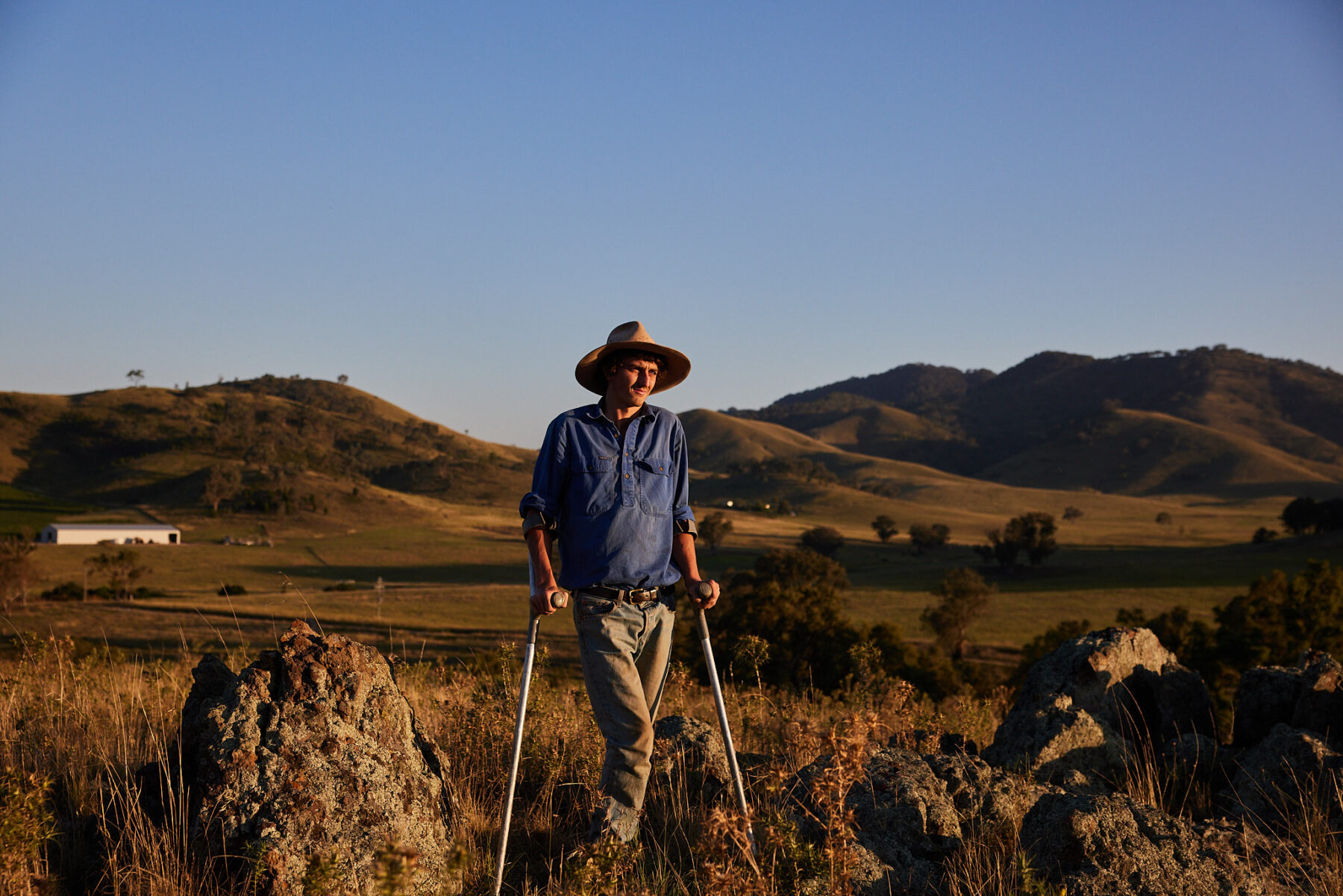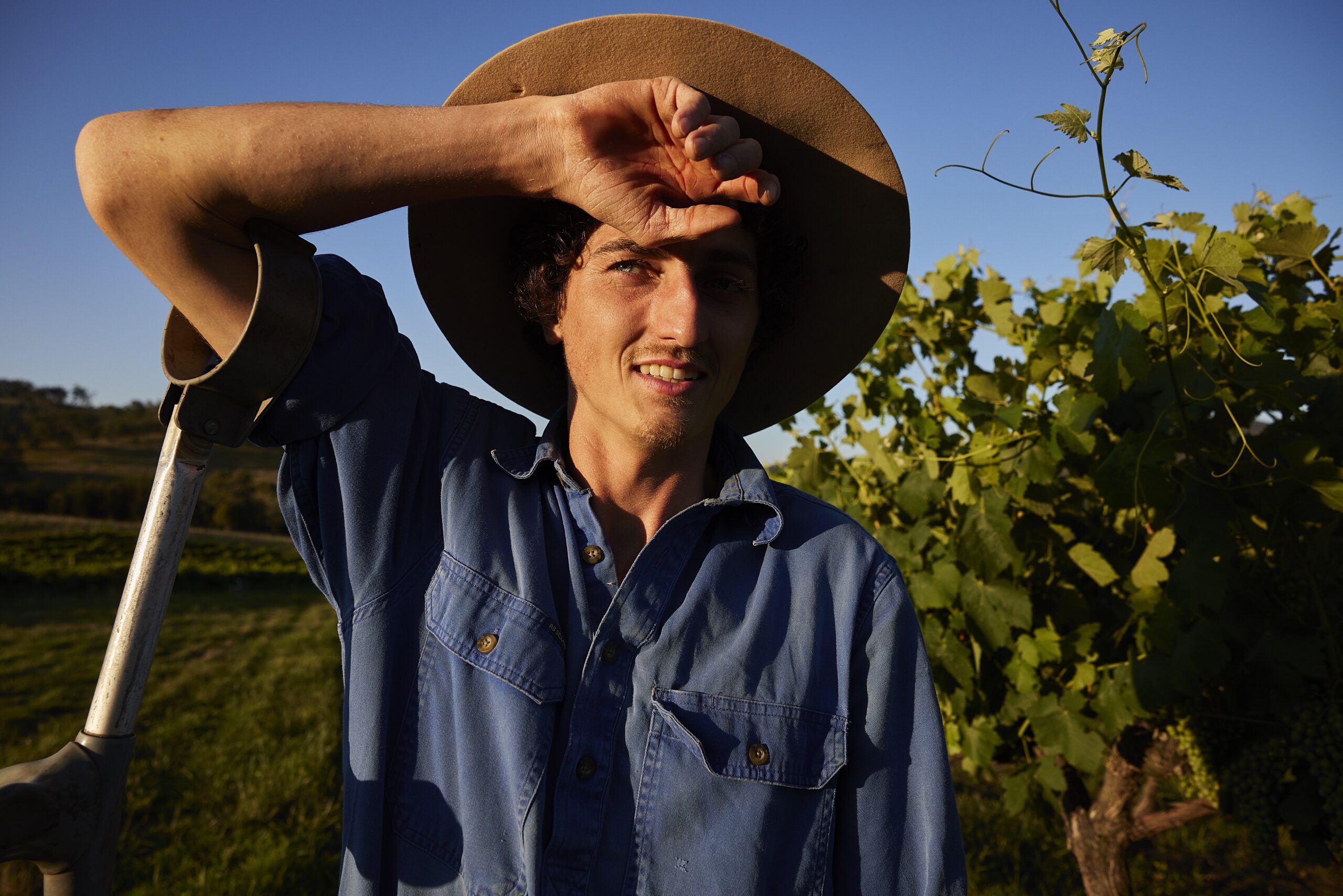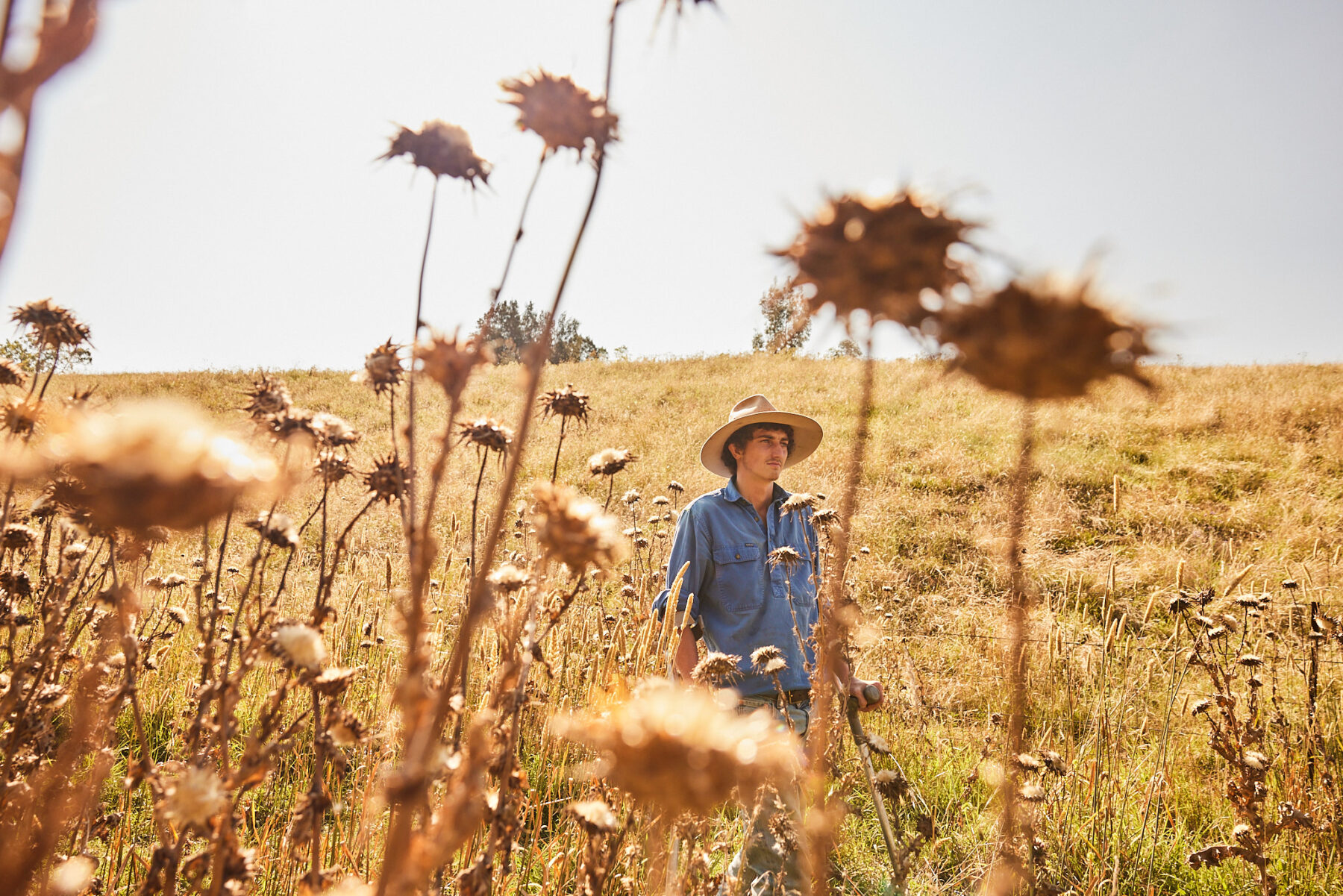It was clear from a young age that Marcus Dadd would grow up to work with animals in some capacity. At his childhood home in suburban Sydney, he lovingly tended to a menagerie of pets: birds, turtles, lizards, a rabbit, a lamb, and a dog.
“My parents were so open to me having all these weird and exotic pets,” Marcus recounts, his blue eyes sparkling as he chuckles at the memory. “If you name it, I’ve probably had it.”
Any creatures that Marcus couldn’t convince his parents to house in their backyard he instead cared for as a volunteer at Taronga Zoo, assisting the keepers during the school holidays. “I remember on my first day at the zoo as a 13-year-old, I was rostered on to the lions, tigers and bears,” he recalls. “That was an amazing chapter in my life. I even got to go on a trip down to Chiltern, in Victoria, to release regent honeyeaters (Anthochaera phrygia) into the wild.”
But it was weekends spent as a child and teen working on the family farm, an 80ha property in Mudgee, that set the course of Marcus’s career. On Friday nights after dinner, he and his younger sister would sleepily climb into their parents’ car in their pyjamas, watching Sydney’s glittering cityscape fade in the rear-view mirror and slowly be replaced by a blanket of silent stellar lights as they reached the wide-open spaces of rural Mudgee.
Marcus’s parents bought the farm, before they had children, as an escape from the city and a place to run cattle and sheep. In the same year Marcus was born, they planted a small vineyard there. As the grapevines grew and matured, so did Marcus. Twenty-five years later, the vines still bear plump, juicy grapes each season that a local winemaker ferments into wine that’s poured into glasses around the farmhouse’s family dinner table most weekends.
Something else significant occurred when Marcus was born: he was diagnosed with a rare neurological condition known as Waardenburg syndrome type 4, which impacts his mobility. He uses a combination of crutches and a wheelchair to get around. He was also found to be profoundly deaf at birth and received bilateral cochlear implants at 18 months old.
‘I focus on what I can do’
In spite of these challenges, or perhaps because of them, Marcus forged an indomitable spirit and a strong sense of optimism. These qualities served him well when, a few decades later, he left the 80ha family farm to work as a ringer on a 4000sq.km station in the Northern Territory.
“One of the key things about overcoming adversity is just having a positive attitude to everything that life throws at you,” Marcus says. “I focus on what I can do rather than worrying about what I can’t control.”
And it turns out he can do a lot. He recently completed his role as a ringer on Delamere Station, located about 170km south-west of Katherine, where he and a tight-knit team of six workers rotated through 13-day fortnights. He drove a motorised buggy across the land, beneath helicopters and alongside horses while mustering the thousands of Brahman cattle that roam the remote pastures.

Marcus was also responsible for entering data into a tablet while patrolling the property, fixing fences, and completing other yard work. “The mustering work is a bit of organised chaos… You bring in some huge mobs of cattle, sometimes numbering a few thousand in a mob, stretched out over a couple of kilometres of road,” he says. “It’s rough country so you’ve got to be on your game. Everything there is on a huge scale. But I think it helped that I had some experience from my family farm back home.”
Undoubtedly a favourite part of Marcus’s day was as the sun was setting. He would sit drinking in the vista from the homestead, perched atop an escarpment, with sweeping views of the valleys and plains below. “I was able to live out a dream there, working up north,” he says. “You form a close bond with those you work with. The crew up there just embraced me and gave me the opportunity to live that life in a genuine sense, and experience it fully.”
The station manager arranged for railings to be installed on the stairs to assist Marcus. But otherwise, planning ahead was key to his success in working a physical job with a disability in isolated country. “I just had to be thinking ahead and making sure I had spare parts for my cochlear implants, extra crutches, things like that, because if I had to order them they would have taken weeks to reach me,” he says.
His eight months on Delamere Station was the first rotation of a two-year graduate placement program offered by the Australian Agricultural Company (AACo). His second rotation has now landed him in inner-city Brisbane, at the AACo head office, just a short walk or wheelchair ride from his apartment in the riverside suburb of Newstead. As he talks about his new role, he sits at a trendy bar wearing jeans, boots and an appropriately blue-collared shirt tucked into a Hard Yakka belt. He sips on a schooner of XXXX, Queensland’s iconic beer. “The first week here in Brisbane was a bit overwhelming and I was just trying to take it all in, but I feel pretty settled in now,” he says.

Employed in the innovation team at AACo, one of Australia’s oldest companies (founded in 1824), Marcus is working with existing business units to streamline operational processes as well as assess new technologies in the industry. “It’s a future-oriented role, which is exciting,” he says. “Agriculture is making a lot of good moves towards improving sustainability, which is important, and it can lead to productivity benefits – so it’s a win-win.”
Marcus isn’t only talking from experience but also from the perspective of the extensive study he has undertaken. At the Australian National University in Canberra, he completed a Bachelor of Environment and Sustainability with Advanced Honours. His honours project examined how the beef industry in Australia could best be rewarded for climate-positive practices. He also acknowledges the role consumers play in demanding best practice, by ‘voting with their dollars’.
Self-described ‘nature nerd’
With this impressive résumé, it’s not surprising Marcus was chosen as an ambassador in 2024 for the International Day of People with Disability. “I want to help break down some of the stigmas around what really is possible for people with disabilities,” he says. “Agriculture is such an amazing industry where there’s a diversity of roles and skills that are required, so there really is a place for people with disabilities to be involved in a variety of forms.
“I have also done some work with Ability Agriculture, and they are a great place to start.”
During holidays Marcus avoids Sydney, preferring to return to the family farm. After all, it was this home soil that inspired his choice of study and career. “A big driver of where I found my destiny was when the drought broke in 2020 and I saw our farm transform from a barren and desolate environment to a lush green,” he says. “We had a few really good seasons after that, and I saw what agriculture could be at its best. That’s when I found my true calling.”
In his career, Marcus aspires to be a leader in his field. He admits his goals even scare him a bit. “If it doesn’t scare you a little, you’re probably not thinking big enough,” he explains. “But I also just make the most of every day, because you’re only going to live in this moment once.”
A self-described ‘nature nerd’, when Marcus isn’t on a farm or in the office he’s spending his weekends exploring Australia’s wild places – chasing waterfalls, road-tripping to national parks in a modified hand-operated car, or patiently waiting for that elusive bird sighting. He has spotted more than 400 species, including a rare orange-bellied parrot (Neophema chrysogaster) in the Tasmanian wilderness.
His childhood heroes, Steve Irwin and David Attenborough, would undoubtedly be impressed. “I’ve been to every state and territory and seen some extraordinary places,” Marcus says. “Australia is a beautiful country filled with natural wonders. You’ve just got to get out there and find them.”
